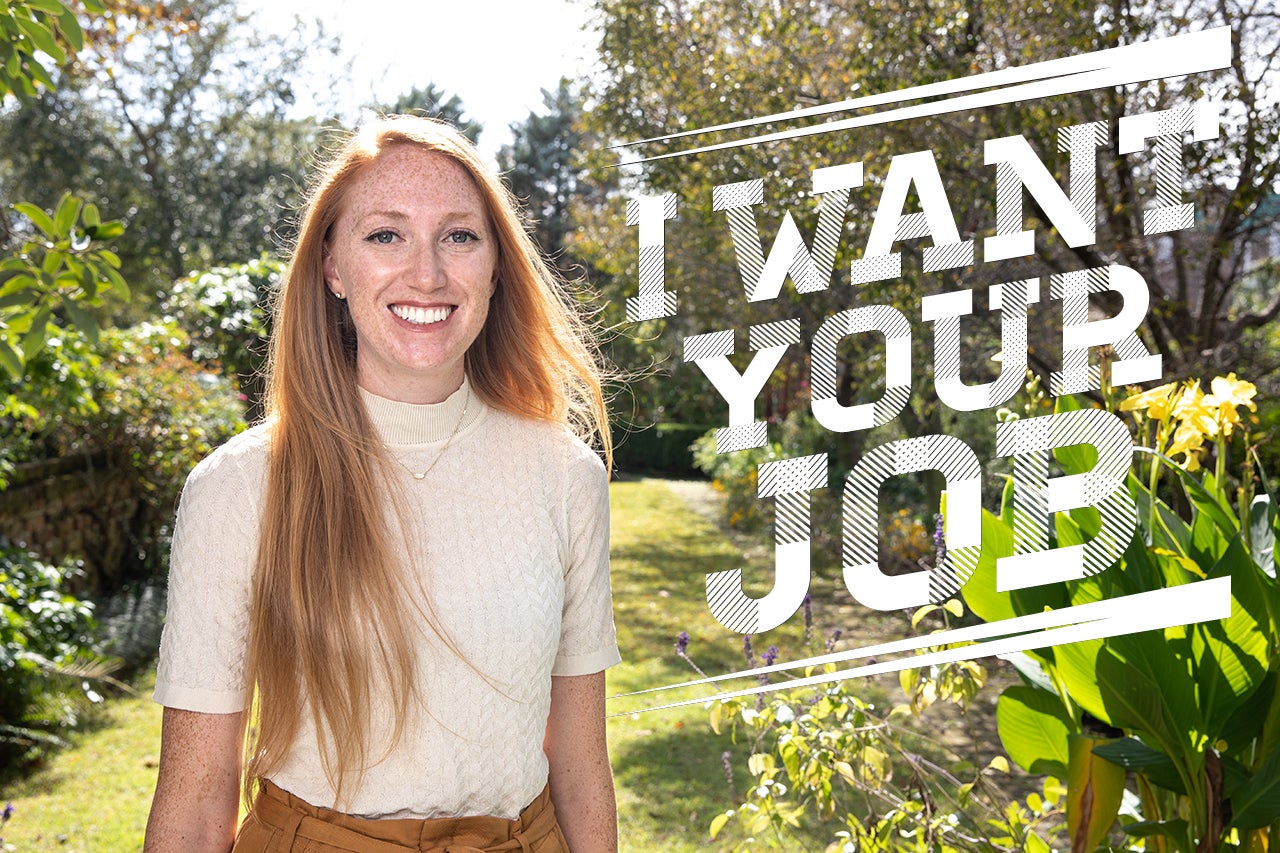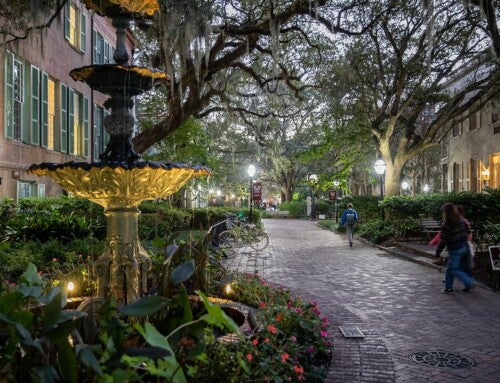The South Carolina Lowcountry has been gifted with many natural treasures. From the marshes to the ocean, from a plethora of coastal birds to a bevy of fish and marine life, there is no shortage of environments to explore.
And growing up on Hilton Head Island, South Carolina, Betsy La Force ’12 got to see firsthand the beauty of the Palmetto State’s beaches, rivers, inlets and marshlands. In fact, it was because of that magical outdoor ambiance, that the international studies and French double major, developed a passion for our natural environments.
“Since I was a little girl, I’ve felt that I would do whatever it takes to protect the beauty of this place and the natural wonders that make it so unique,” says La Force.
And, as the communities and transportation project manager for the Coastal Conservation League, a Charleston-based nonprofit that focuses on protecting the threatened resources of the South Carolina coastal plain, she is doing just that.
The College Today posed six questions to La Force about what it takes to advocate for environmentally sound transportation policies and how the greater Charleston area could take steps to better protect our treasured coastal environments.
How did your time at CofC shape your career goals?
It was the people I met during my time at CofC who deserve the credit for shaping my career goals. Professors, mentors and friends from different parts of the country turned me on to new ideas in sustainability, agriculture and ecology. It was at the College of Charleston that I started composting, volunteering and advocating for important environmental issues. I also worked as a kayak guide and naturalist throughout college, teaching visitors about the wonders of our salt marsh ecology, which further deepened my passion for the environment. I left CofC with a deep desire to contribute to my community. I’m very fortunate to now be living that dream through my career.
How did your liberal arts education in international studies and French prepare you for a career in environmental policy?
My job at the Conservation League requires consistent and effective communication. Being bilingual has strengthened my ability to develop and convey clear ideas through spoken and written word. I wrote hundreds of papers in college, and that discipline prepared me to produce professional writing assignments with relative ease and rapidity. In addition, I like to believe that my time abroad taught me to view the world through a broader lens, to question everything and to keep an open mind when considering even the most local of issues.
What are your job duties as the communities and transportation project manager for the Coastal Conservation League?
I focus on coastal issues involving resiliency, preservation of rural/agricultural lands, community design, multi-modal transportation and waste reduction. I monitor agendas for public meetings, keep an eye on requests for permits and applications and analyze the local media for stories that pertain to our conservation work. Several nights a week you can find me at public meetings and hearings gathering information and/or representing the Conservation League by providing public comments. I also do a fair amount of grassroots community organizing to help engage and educate the public on how to effectively participate in the public process regarding important local environmental decisions.
What do you see as the most pressing issue facing the greater Charleston area in terms of transportation?
We face many pressing transportation issues in Charleston today. I’d say that routinely flooded roadways and the lack of a connected, multi-modal transportation network are at the top of the list. At present, people don’t have reliable options to get around our region other than by automobile. This creates a car-centric culture and exacerbates the existing traffic congestion on our roadways. We need safe ways to cross the rivers on our bicycles, we need more connected sidewalks, more efficient bus systems and we need to take advantage of our abundant waterways via a regional commuter ferry system. Such options would remove pressure from our roadways and provide alternatives to get around when it floods. The opportunities for increased mobility here are many, but for now, unless you live in a walkable community like downtown Charleston, you essentially need a car to be mobile.
What is your preferred method of transportation and why?
I opt for low stress and low impact transportation whenever possible, as it’s better for the environment and for my health. I’m grateful to be able to ride my bike to work, which is a wonderful way to start and end a busy day. Not only do I find biking to be the most enjoyable way to get around town, I also love my bike – I have a Surly Crosscheck. I rode it all the way from Charleston to Savannah last May as part of a group ride initiative to raise awareness around the lack of safe bicycle infrastructure in our region. I can’t wait to do another long ride.
For long distance trips, I’m a train enthusiast. I’ve taken the Amtrak from Charleston all the way to Montreal, and from Sacramento to Seattle. I regularly take the train down to Savannah for weekend trips. While I was living in France, the train was my number one mode of transport for getting around Europe. In my view, it doesn’t get much better than sitting back and relaxing with a beverage and a book in hand while being carried through scenic landscapes to your final destination. I wish we had passenger lines running from Charleston to Columbia and Asheville. I’d do anything to avoid I-26 in the car for those frequent trips.
How did your previous roles in program development with SMART Recycling US prepare you for working with an environmental advocacy organization?
During my time at SMART, I gravitated toward the community based philanthropic initiatives of our work. Whatever I was doing for SMART, I always valued the opportunities to interface with people about the magic of composting and why it is so important. I realized I had a knack for encouraging people to get on board with composting, and I loved seeing environmental literacy increase as a result. My experience at SMART provided an opportunity to further develop my skills in communication, education and building relationships in the community around sustainability issues. I decided I wanted to apply those skills to advocacy work that could influence policy at the local level.





